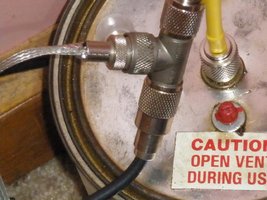- Joined
- Mar 28, 2009
- Messages
- 4,908
- Likes
- 2,902
Last night as the storm passed through I was wishing that I had disconnected the coax from my radio. I intended to do it after I had finished up in the shack earlier that night. I didn't dare do it during the storm as I figured that was the last thing I wanted to be messing with. For HF I have wire antennas. Does anyone have any opinions as to how susceptible these are to a lightning strike?


